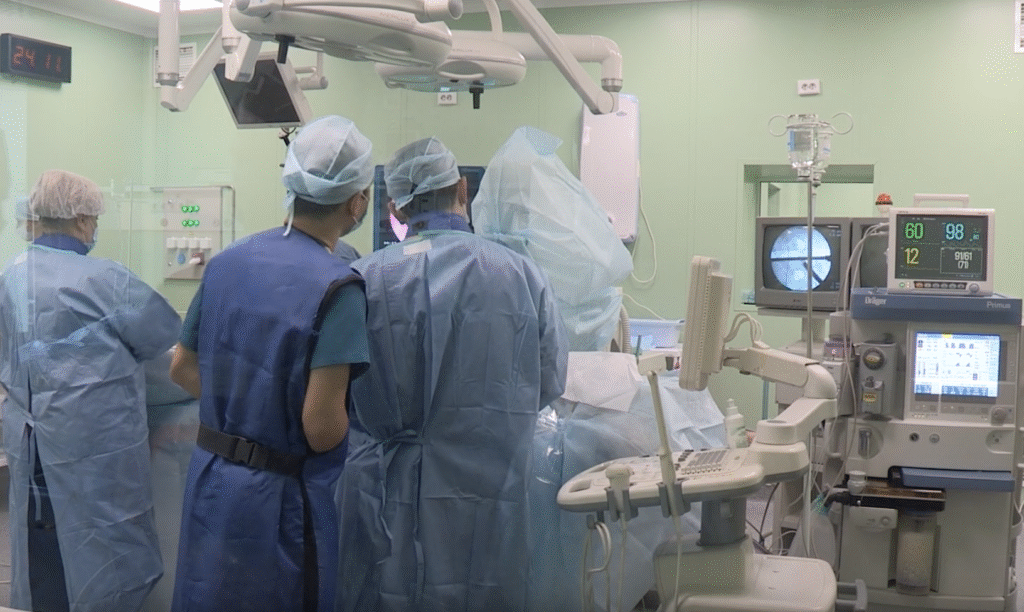The competition is fiercer than ever for coveted roles in MedTech. Careers in the industry abound with rewards; however, breaking into or advancing within MedTech requires more than just strong credentials. Many talented candidates miss opportunities because of small but costly mistakes during the interview process. We’ve polled several hiring managers to see what they are looking for—and what often causes them to pass on otherwise qualified candidates. Here’s what they said are the top 10 mistakes to avoid in MedTech interviews.
1. Not Researching the Company’s Products and Pipeline
MedTech is highly specialized. Walking into an interview without a clear understanding of the company’s flagship products, competitors, and innovation pipeline signals a lack of preparation and respect for the hiring manager’s time as well as the demands for the role. U.S. MedTech industry insights from AdvaMed evaluates this sector as a $200+billion market. Employers expect candidates to know how their technologies fit into that competitive landscape. Failing to prepare for this initial step is a red flag for your overall preparation and paints you as a risky candidate.
2. Overlooking the Clinical Environment
Roles in MedTech often require understanding the operating room, cath lab, OR, hospital setting, and other clinical environments. Candidates who fail to show awareness of the clinical workflow, physician challenges, or patient impact demonstrate a lack of awareness of the real-world environment in which this industry operates. Understanding the landscape and how it affects your customers is a critical quality that hiring managers will value upfront.
3. Focusing Only on Technical Skills
Technical expertise is important, but MedTech companies also want professionals who can collaborate with physicians, train staff, or navigate compliance. Cross-team collaboration, communicating with medical professionals and even the FDA are everyday occurrences in MedTech. Having a strong skill set here is critical. Neglecting to highlight soft skills like communication and adaptability can hurt your chances. Learn more about how to close a MedTech interview with confidence and professionalism.
4. Not Preparing for Behavioral Questions
Questions such as “Tell me about a time you influenced a difficult negotiator” or “How have you handled regulatory setbacks?” are common. Have a few experience stories in mind to draw from so you don’t find yourself stumbling when asked. Practice a few responses to these scenarios.
5. Undervaluing Regulatory and Compliance Knowledge
Candidates who dismiss or downplay FDA guidelines or quality processes raise red flags. This holds true even for non-regulatory roles. Missteps here can dramatically impact a product’s viability. Demonstrating awareness of FDA medical device regulations and U.S. medical device quality and compliance standards shows you’re serious about working in MedTech.
6. Talking Too Much About Past Titles, Not Impact
Hiring managers aren’t impressed by job titles alone—they want measurable outcomes. Why? Because they are concrete and not subjective. Candidates who fail to discuss metrics (e.g., sales growth percentages, clinical adoption rates, product development milestones, etc.) often lose roles to those who do.
7. Asking Generic Questions
When asked, “Do you have any questions for us?” responding with something vague like “What’s the culture like?” won’t set you apart. Instead of asking about culture alone, consider these smart questions to ask during an interview that show deeper interest. Strong candidates ask targeted questions about product pipeline, competitive strategy, or clinical adoption challenges. It’s an opportunity to showcase your business acumen and comprehension of the industry sector. It’s certainly not the time to ask about benefits and vacation time. Save those for HR discussions.
8. Failing to Adapt to the Interviewer
In MedTech, you might interview with HR, an engineer, a sales manager, and even a physician advisor. Treating every conversation the same is a mistake. Successful candidates tailor their responses to each perspective. Do your homework for each conversation and come prepared to best approach their interview style and field of interest. Don’t forget the importance of closing each one.
9. Poor Handling of Ride-Alongs or Case Studies
For sales or clinical roles, companies may require a ride-along or case study. Treating these these lightly—showing up unprepared or disengaged— typically lead to being passed over for a role. Often, they are the last box to check, so close them as you would the hiring manager. These exercises are designed to test real-world performance. Prepare using our tips for a successful MedTech ride-along so you’re ready to stand out.
10. Not Showing Passion for the Mission
MedTech is about improving lives through innovation. Failing to connect your personal “why” to the company’s mission makes you appear less committed. Hiring managers want candidates who are not only skilled but also genuinely passionate about impacting patient care. When the days are long and challenging, they want a candidate who has the staying power for the long run.
Final Thoughts
Interviews in the MedTech industry are as much about mindset and preparation as they are about skills. Avoiding these common mistakes can help you stand out in a competitive field. Pair these insights with practical interview tips from the U.S. Department of Labor to enter your next interview with confidence.











